From his home at the edge of a continent, Pete DeVries relaxes on his couch, dog sprawled at his side. It’s mid-morning in Tofino, the tiny beachfront hamlet in the western corner of British Columbia where DeVries was born and has lived all of his adult life – the same town where he’s now raising his own teenage son. And as I ask him to describe the place to someone who’s never been there, and who may not have even known it existed until just now, the first thing he tells me is that it’s not as small a place as it used to be.
Growing up in Tofino in the late 90s and early 2000s, DeVries says, truly felt like you were in the middle of nowhere, particularly during the harsh winters. But over the years, despite being an hours-long drive and a ferry ride away from any major city, it’s been discovered. Tofino, DeVries tells me, has that combination of beautiful beaches, good food, and nice accommodations that’s rare in Canada, and that’s led wealthy vacationers to snap up beachfront property for their summer homes. The singer Sarah MacLachlan now owns the house where DeVries grew up (though he says she hasn’t really changed much about it at all). And many of those vacationers are drawn in by the waves, because this is a place where, despite the often-frigid waters, surf culture has become a way of life.
“It’s definitely changed,” DeVries says, and the part that goes unspoken, mostly out of modesty, is that DeVries himself has played a role in raising Tofino’s international profile.
You may not associate Canada with surf culture, but many of those both within and far beyond Canada who follow surfing know the name Pete DeVries. On the verge of turning 40, he’s widely regarded as the greatest surfer the country has ever produced, and he’s accomplished it largely by surfing for over three decades in some of the coldest waters in North America. And even as DeVries’ renown grew, he never really wanted to leave the place where he grew up.
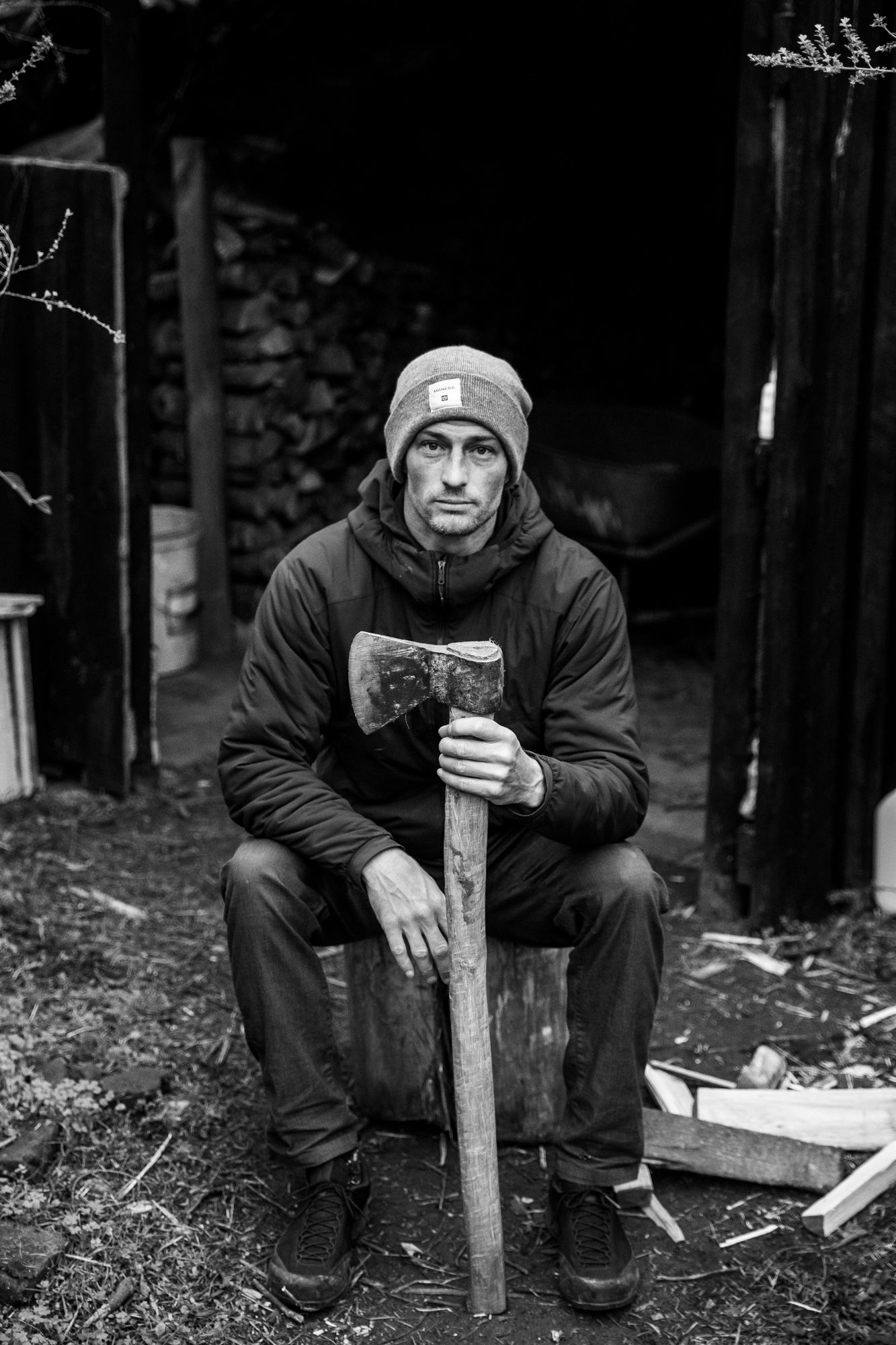
For years, DeVries declined opportunities to leave Tofino for more traditional – and more crowded – surfing meccas. By moving away from competitive surfing and focusing more on freestyle trips to faraway places and exotic locales that have made him the subject of some of the most breathtaking surf videos of the past couple of decades, he’s forged a career that’s allowed him to stay rooted at home.
“I mean, there’s part of me that wonders if I’d given (competitive surfing) a shot later in life, it would have been interesting to see what happened,” he says. “But I’ve got a family here. So I guess it all comes back to my upbringing, you know?”
The story of DeVries’ upbringing begins with that house on Chesterman Beach, the one that Sarah MacLachlan now owns. DeVries’ father emigrated from the Netherlands, worked various construction jobs, met his wife in Tofino, and built a house for their family. In the mornings, he’d gather with a few friends and hit the surf, which, DeVries says, was not exactly a mainstream pastime back then.
It wasn’t just that surf culture was still an alternative pursuit that was frowned upon in much of the world; in fact, many of the earliest surfers in Canada had come to the country to dodge getting drafted during the Vietnam War. But Tofino’s waters were also unbelievably cold, which almost made surfing them feel more like a dare than a sport.
Still, DeVries was fascinated, and he’d wander out onto the beach to watch his father surf. When he was around 7, he got his first board and outfitted himself a makeshift wetsuit that regularly flushed his body with frigid water. DeVries was a natural athlete who played a variety of sports, but there was something about surfing that captured his imagination.
“It’s honestly one of the hardest sports on the planet because you're dealing with such a variable medium like the ocean,” DeVries says. “It's so unpredictable. You never know what's coming and you're never gonna see the same wave twice.”
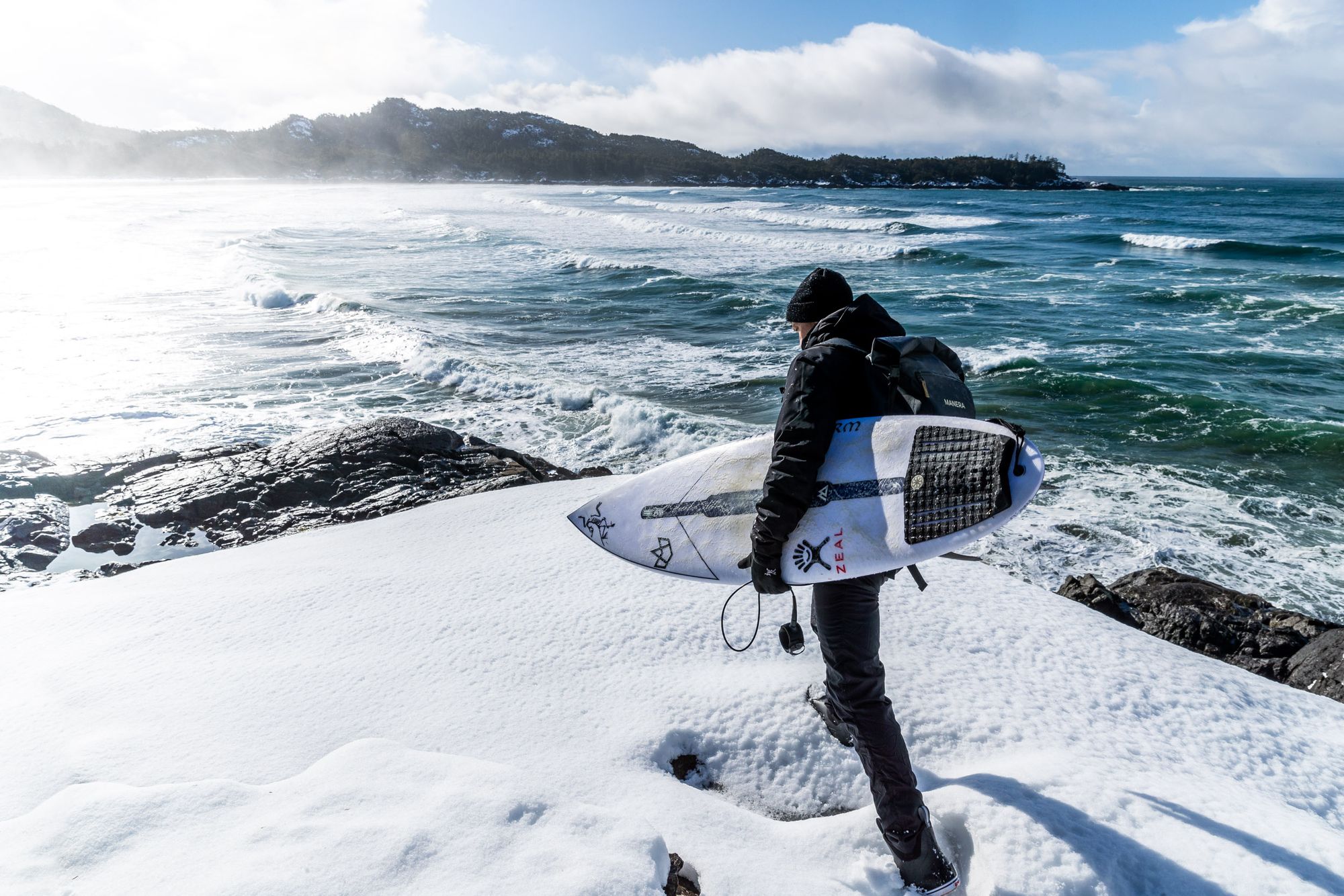
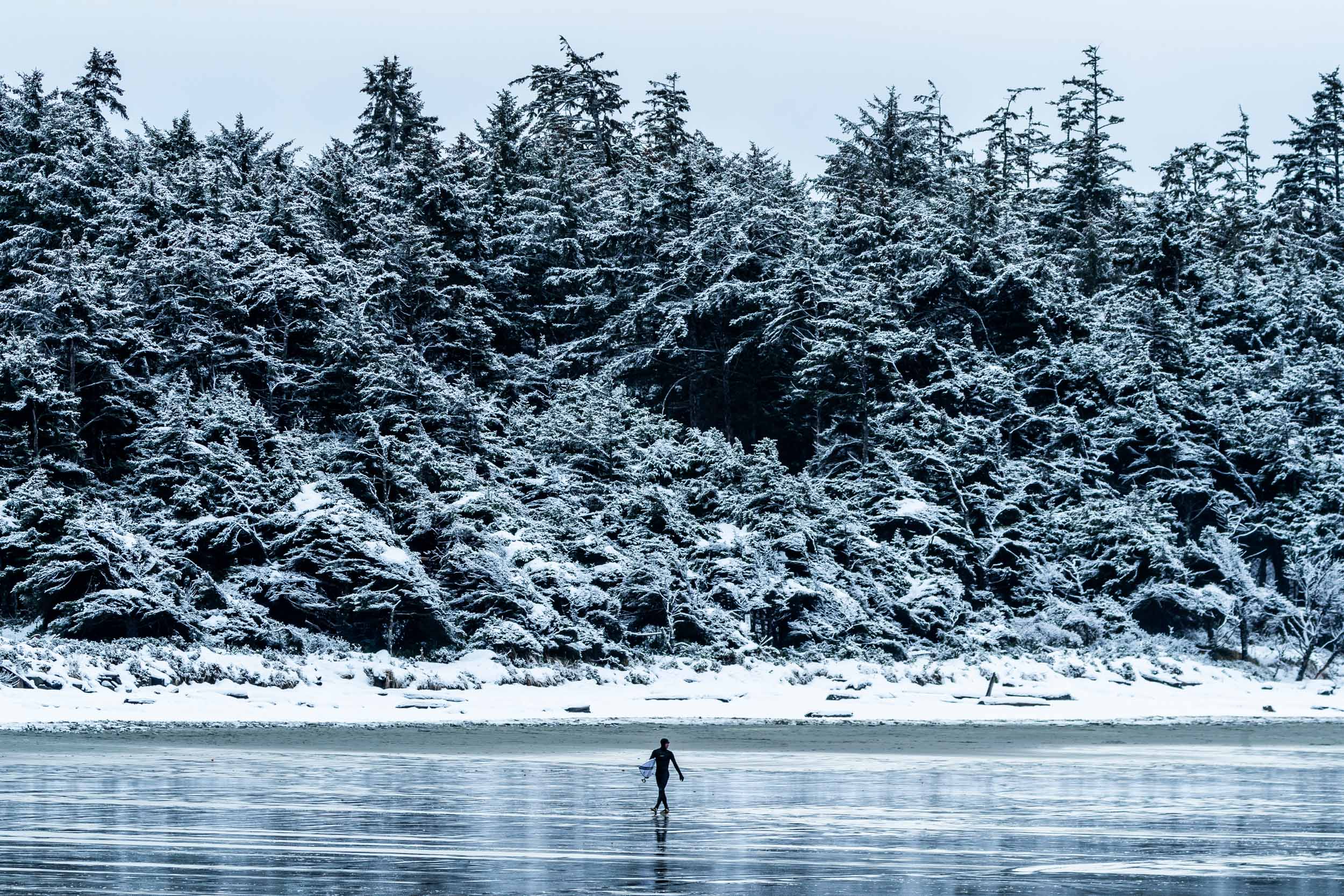
Rather than hit the tropics for sun and surf, DeVries prefers to stay home. [Marcus Paladino photos]
As he approached his teenage years, DeVries squeezed into the smallest women’s wetsuit he could find at the local surf shop. Then he got a job at that same surf shop and immersed himself in the culture. And while the surf scene was still relatively small, DeVries did have role models to look to: Brothers Sepp and Raph Bruwiler, a few years older, emerged from Tofino and became the first Canadian surfers to gain international attention.
DeVries had a small group of friends who would surf and hang out with him. One of them was into photography and video and began shooting footage of DeVries surfing when was 15. On a lark, they sent a VHS tape of footage to Hurley, then a fledgling surfwear manufacturer. Jeff Hurley, the son of founder Bob Hurley, slipped the tape into a VCR, and was so pleasantly surprised by the video of a talented teenager surfing in Canada that he sent DeVries a box of gear.
DeVries began surfing in more events, both locally and elsewhere. He amassed a room full of trophies. Eventually, word got out beyond Canada, and Hurley became his first full-fledged sponsor. When DeVries was 17, his mom asked him a question that might have changed his life: Do you want to move to California and pursue competitive surfing full-time?
“I’d already traveled down there a bunch of times and I couldn't wait to come home literally every time I went because it's so crowded, it's so busy and has a very different atmosphere,” DeVries says. “Up here, I'd surf by myself probably five days a week or with just one or two friends. So that's what I was used to surfing being like.”
And he wasn’t willing to give that up. So he told his mom no. And he stayed in Tofino.
Even then, DeVries was too talented for the major sponsors to ignore. In his late teens and early 20s, he spent three years riding for Red Bull, traveling to more and more tournaments at their behest. And then he once again realized that it wasn’t what he wanted; so, as he broke his ties with Red Bull, he went back to Hurley and told them he wanted to do something different.
“At that point, cold water exploration and trips to different regions were becoming very popular,” DeVries says. “So it was kind of the perfect timing and the perfect niche for me to go into.”
Those trips became DeVries’ focus for the better part of a decade, as the Internet broadened the market for surf photos and videos, especially from undiscovered places. DeVries still competed in local events in Tofino, and on Halloween in 2009, he scored the most surreal victory of his career. In front of friends and family, in front of a town that had known him and nurtured him for years, he entered the O’Neill Cold Water Classic Canada in Tofino, a field with over a hundred top international surfers. It was the first time the event had been held in Canada, and DeVries’ expectations were low, but a lifetime of studying the surf in Tofino paid off.
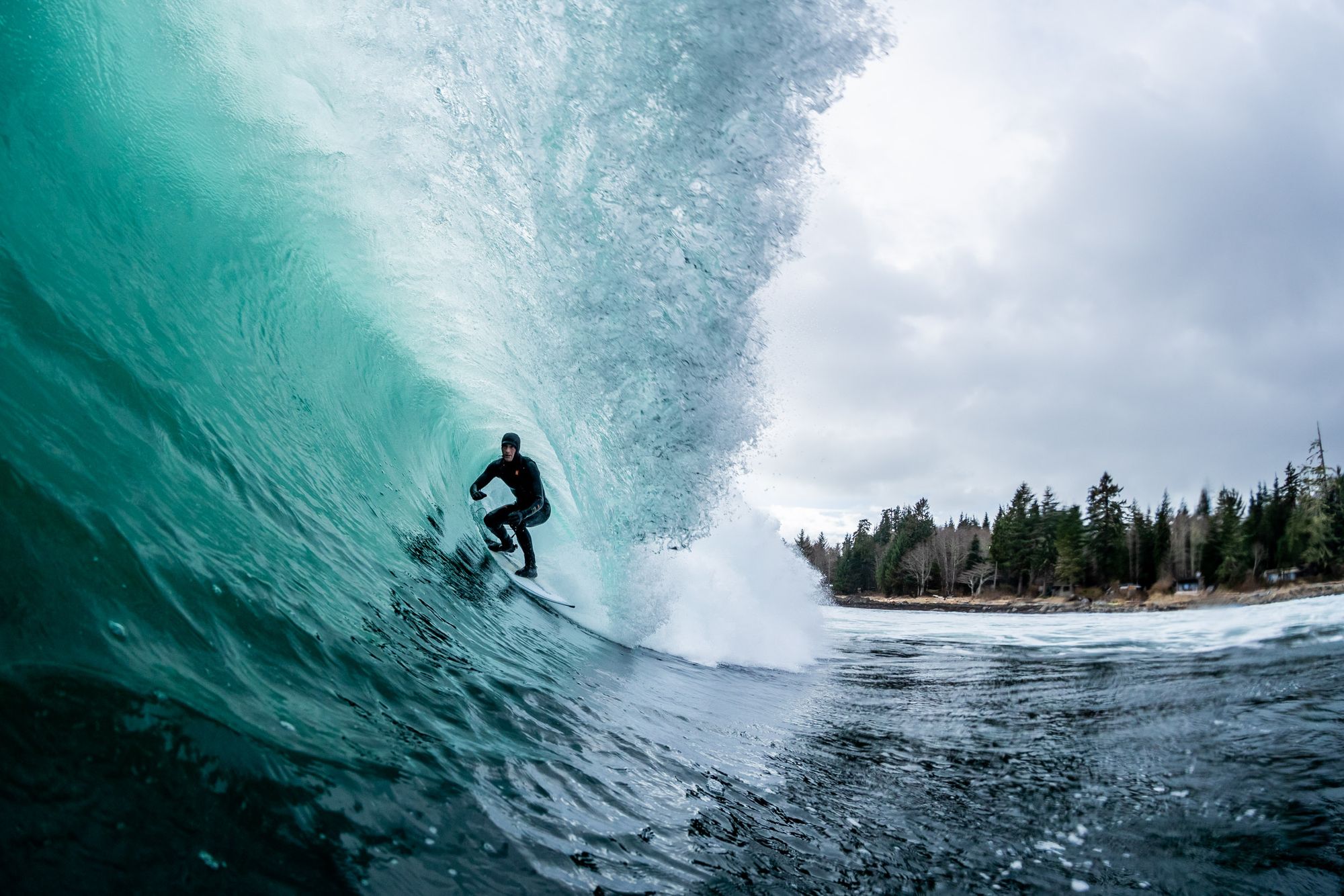
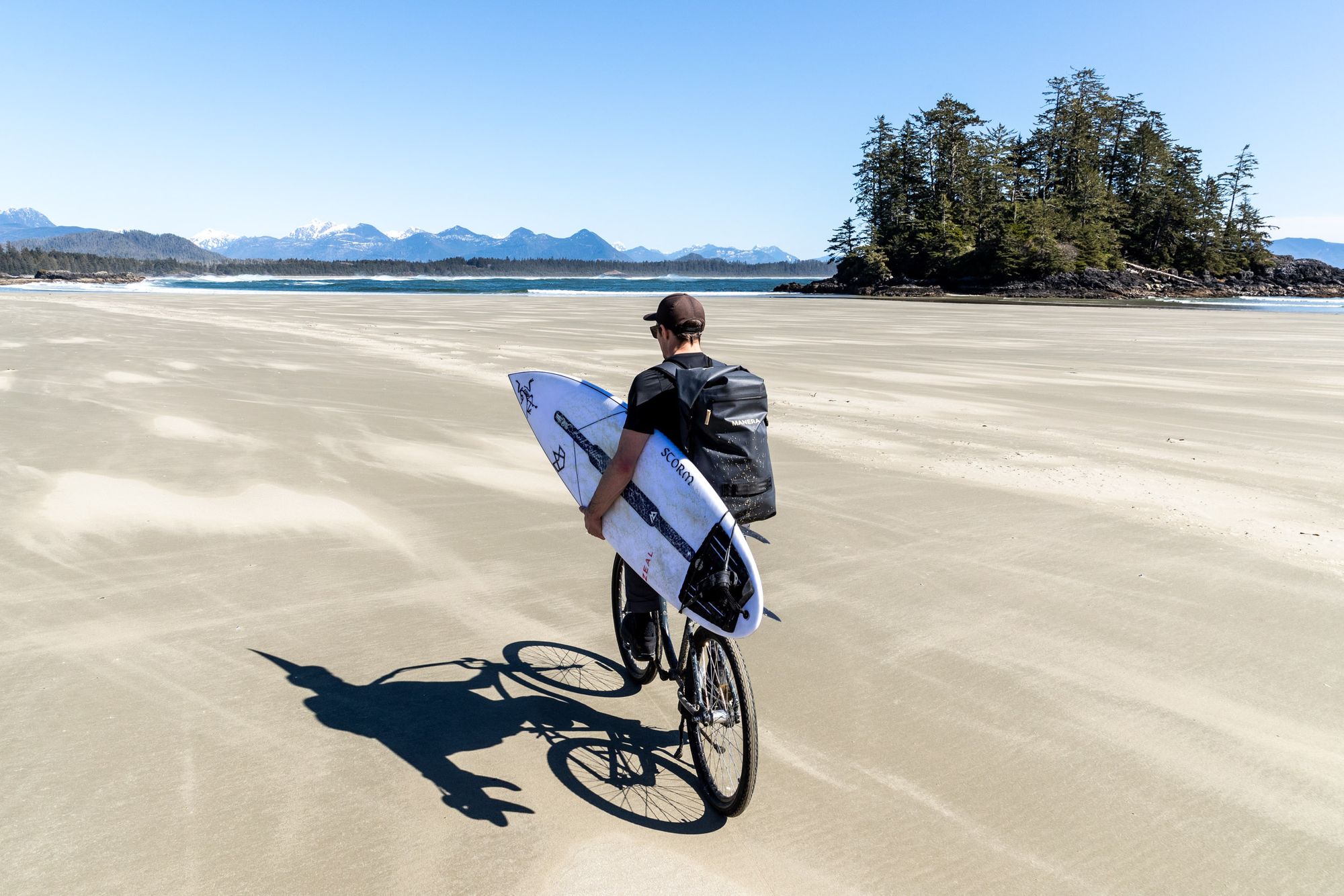
Pete DeVries has long dictated the terms, which makes for calm waters and a happier life. [Marcus Paladino photos]
As he won heat after heat, and eventually won the tournament, the Canadian national media caught wind of what DeVries was doing. He did interview after interview. “It was wild,” DeVries says. “It was definitely something that I haven't experienced before.”
In the wake of that victory, DeVries could have taken another shot at competing on the international scene. But once again, he found himself embracing both the quiet of Tofino, and the kinds of freestyle trips that took him to places that were far removed from the beaten path–and often even colder than Tofino, where he’ll charge out into the surf every morning even when there’s snow on the beach. He’s now sponsored by the Canadian outdoor apparel company Arcteryx, among others, and he’s traveled to places like Iceland and Norway and Nova Scotia, where the air temperature was roughly 13 below zero Fahrenheit. And a lifetime of cold-water surfing has made him ready for nearly anything.
“When you first get into the water, it’s almost always painful–you can get brain-freeze even with your hood on sometimes,” DeVries says. “But it’s just getting over that initial struggle. It really comes down to your mindset and how fired up you are. You've really got to motivate more than you would when you’re in board shorts somewhere.”
And that, DeVries has learned, are the kinds of challenges he prefers–the internal challenge of competing against himself, rather than the external challenge of competing against others. The battles against his own psyche, and his own expectations. Those moments when he’s out there on his own or with a couple of friends, taking on the waves in some place that’s entirely discovered. And even as he’s helped others to discover Tofino–and even as the beach two minutes from his house now draws hundreds of surfers in the summer–the best part of every trip is still coming home to that little town on the edge of the continent.
“Tofino doesn’t have the same feel it did, and a lot of people have left because of that,” he says. “But honestly, I just don’t know where I’d rather live.”